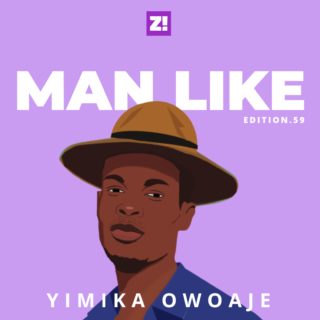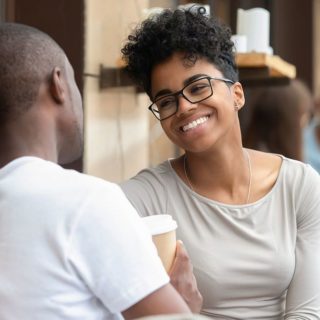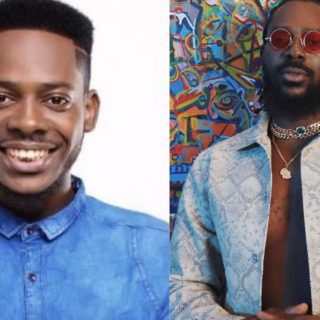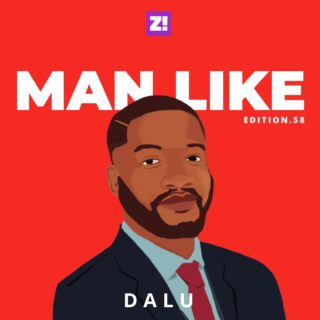What does it mean to be a man? Surely, it’s not one thing. It’s a series of little moments that add up. Man Like is a weekly Zikoko series documenting these moments to see how it adds up. It’s a series for men by men, talking about men’s issues. We try to understand what it means to “be a man” from the perspective of the subject of the week.
Today’s Man Like is Anny Robert, a photographer. He talks about leaving graphic design for photography after seeing a down sum payment and how his career affects his romantic relationships.
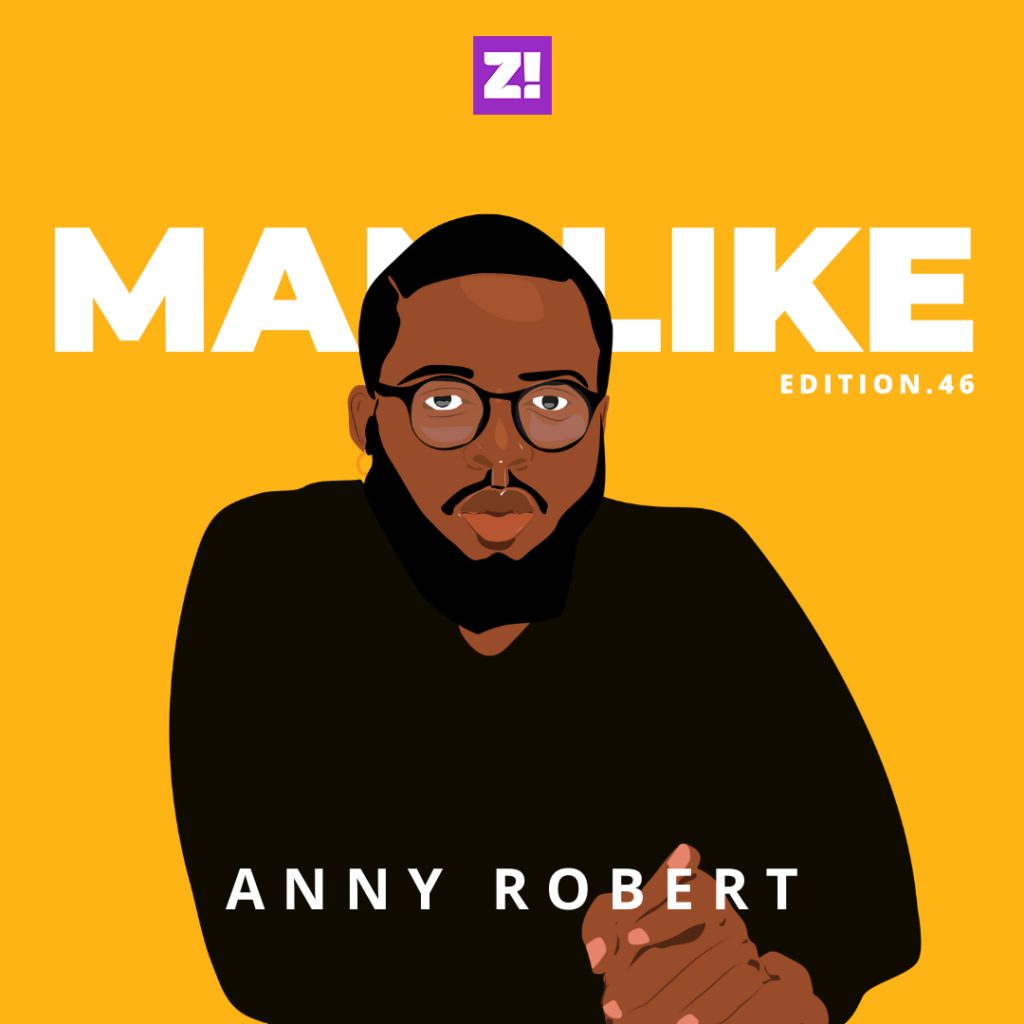
Let’s talk about growing up.
My dad was a lecturer, but he wasn’t as strict about my academics as other lecturers were with their kids. He is quite playful and doesn’t take things too seriously. Still, he was a disciplinarian, and there were rules.
Because my brother and I went to secondary school at the Federal University of Technology, Minna where my dad lectured, we were constantly watched. What this meant was that I grew up well-behaved, even when I went to study at Covenant University.
What was uni like for you?
University was my first chance to leave Niger State, and I grabbed at it. However, I knew how hard my parents worked to send me to Covenant University, so I stayed relatively well-behaved. I didn’t want any trouble with the school’s disciplinary panel. I didn’t even date anybody. It wasn’t until I graduated that I started exploring my freedoms.

What did you study at the university?
When I was picking courses, I thought studying computer science meant I was going to learn about graphics, design and animation, which were things I was interested in. It wasn’t until I resumed classes that I discovered how wrong I was. A lot of my course work revolved around math, logic and computer programming, which I hated. I did terribly except in a 3D-animations course where I performed excellently.
During my IT in 300 level, I learned graphics designing during my internship. I worked at a t-shirt company called Cool Beans in 2013 where I designed t-shirts. The company folded after two years, so I had to find another job. I soon found one as a graphics designer in a company that produced bespoke suits. It was during this time I picked up photography.
How did you get into photography?
At the time, a lot of people around me were photographers. I watched them during shoots and started to learn a couple of things. I still wasn’t hooked on it until I saw a down payment my friend received. It was a huge sum, more than anything I could ever make as a graphic designer. It was at that point I decided that photography was for me. I started learning how to edit pictures before I even picked up a camera, which was easy due to my knowledge of graphic design and photoshop. I’d take RAW pictures from my friend’s shoots, practice photoshopping those pictures, then ask my friends to critique my work. This was in 2015.
So photography was about money, for you?
It’s always the money. Except you’re a trust fund kid or you have one inheritance waiting somewhere for you, you need to work in order to remain independent. It’s a means to an end, and that’s what photography is.

At what point did you realise you had reached the pinnacle of your profession?
Around 2017. I started getting an idea that I was actually good at this stuff. I was getting a lot of work, and it just never stopped. My friends and followers were very generous with feedback and hype, so I started to figure that I was actually doing something good. There were also calls from a couple of celebrities.
That must have been huge.
Not really. It was great to photograph celebrities early in my career, but most of them want free services because of who they are. They’re nice to have in your portfolio because it gives some credibility to your work, but eventually, you realise they just want free service. So I’m not so excited about photographing celebrities if they aren’t paying.
How do you feel about the impact of your work?
Strangely enough, I never actually realise how big my work is. Unlike art forms like music, I don’t know how much traction it’s gaining because I’m usually behind a camera or a computer screen. I’m also my biggest critic, so I’m always seeing problems in my own work even when others say I’ve done something amazing. Yet, I see the ways I’m improving every day, and I think that’s what counts.
Do you have imposter’s syndrome?
Definitely, yes. In other fields, there are certifications you can take to prove your proficiency in a field. In most art fields like photography, it’s mostly based on freestyle and vibes, so there’s a lot of imposter syndrome even at the pinnacle of your field. You never can measure how good are. And because internet hype is very fickle, you can’t use that either. People can call you a genius one day and call you unimpressive the next.

How do you deal with it?
By constantly reassuring myself that I actually know my stuff. Asides from this, I’m always trying to do better work so I know I’m not slacking. It might just take some time to believe my own hype.
I’m also aware that I don’t release mediocre work. The worst it can be is average, so this helps build my self-confidence. I think the most important thing is to continue growing and learning and see where life takes you. If you had told me in 2013, when I was a graphics designer at Covenant University, that I would be one of the top photographers in Nigeria in 2021, I would have laughed your ass to death because I knew nothing about photography.
Who’s been your favourite person to work with?
My favourite artist to photograph was M.I. Working with Don Jazzy was also so much fun because he’s easy-going and playful.
That’s cute. Tell us a bit about your love life.
As I said, I wasn’t very involved with women in my uni days. I guess I was just too shy to ask anyone out. After uni in 2013, I was in a long-term relationship that ended after three years despite my best efforts. We started getting distant in our second year of dating and finally broke up in our third. By the time it ended, I was just starting photography as a career, so I just channelled my heartbreak into learning my craft properly.
I didn’t really think about relationships anymore after that. I’m not great at multitasking, and I tend to have a one-track mind, so focusing on photography left me little time for anything else, especially for love. It was my decision to focus exclusively on photography that gave me the career I have today.
I later had a thing with someone which didn’t quite pan out well due to distance even though we tried to make it work. After that, I closed the shop of my heart. LMAO. I decided not to have relationships anymore till I figured out my photography career.

And now that you’ve figured it out?
I got comfortable with being single, and I think I like it a bit too much. Also, because all my focus goes into my job, I don’t know how I’d deal with someone who would make me the centre of their attention. I simply wouldn’t have the time for it. If I found someone I liked who is just as focused on their career, maybe I might consider a relationship with them. I’m not going out of my way to find a romantic relationship.
For now, I’m keeping it casual, nothing serious.
Interesting. What’s your favourite thing about your mini-celebrity status?
I think it’s helped with my confidence a lot. I wasn’t always so self-assured, but being one of the best at my craft affords me a lot of confidence. On some level, you know you’re the shit.
Check back every Sunday by 12 pm for new stories in the Man Like series. If you’d like to be featured or you know anyone that would be perfect for this, kindly send an email.
Are you a man who would like to be interviewed for a Zikoko article? Fill this form and we’ll be in your inbox quicker than you can say “Man Dem.”

